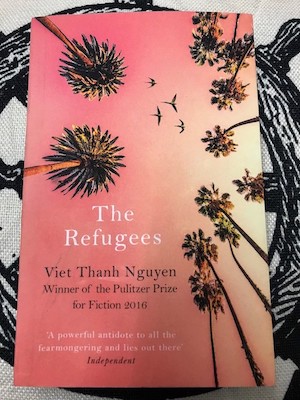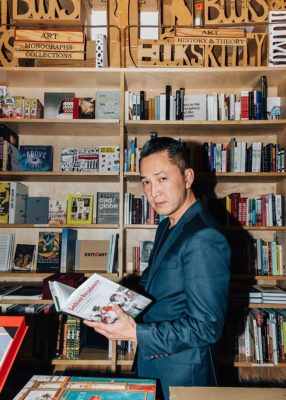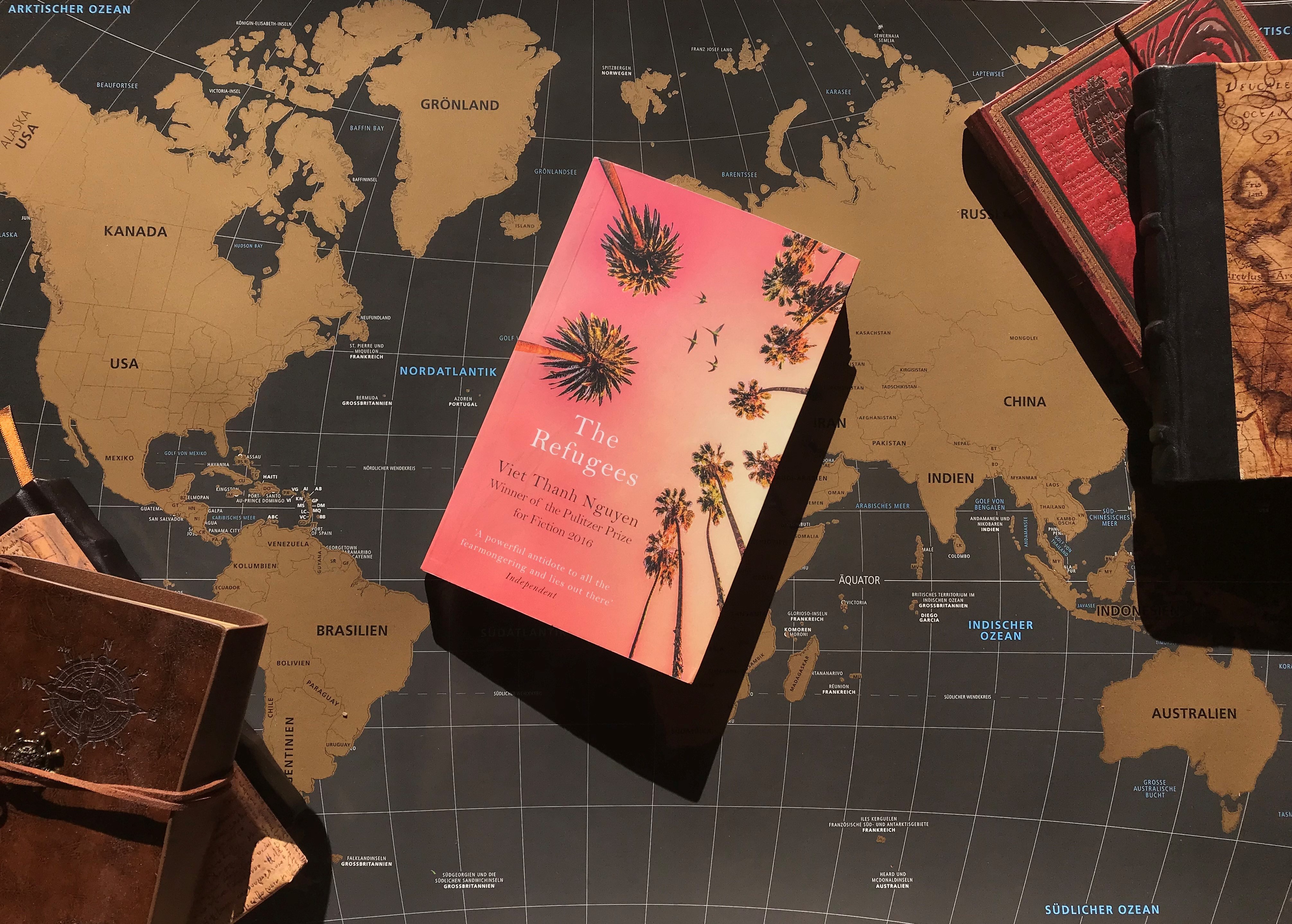Published April 15th, 2021
Review
by Martina Braunegger
In his short story collection, The Refugees, Viet Thanh Nguyen illustrates the different aspects of being a refugee and how that feeling never really leaves you. His stories do not only portray the rich experiences of Vietnamese-Americans in the US but also carry a universal tone by exhibiting the problems, struggles, and joys that are part of everybody’s life, regardless of their ethnicity.
Viet Thanh Nguyen was born in Vietnam, and when he was still a child, he came to the United States of America as a refugee, where he first stayed in a camp that was solely built for Vietnamese refugees during the Vietnam War. Today he is known as an award-winning writer whose novel The Sympathizer is not only a New York Times bestseller but has also brought him the Pulitzer Prize for Fiction. Nguyen is the first Asian American to win this prize, and his work has been honored several times. His latest novel, The Committed — the sequel to The Sympathizer — has just been published in March 2021, and authors such as Tommy Orange praise this new book as “ambitious,” “bold,” and “witty.”

Short stories are often overlooked, especially when the author has also published renowned novels. Viet Thanh Nguyen’s short story collection The Refugees was published in 2017 and deserves more attention. The author became famous with his novel The Sympathizer, which he claims that he wrote after being told that writing a novel was the only way to get published in New York. A few years later, and after working on it for 17 years, he published The Refugees. In his works, he tackles the connection between the United States of America and Vietnam and between the past and the present.
In his stories, he highlights several aspects of American and Vietnamese culture and history. He paints a picture of a society, giving a voice to the shared experience of different groups of refugees: those who have just arrived in the United States, characters that have lived in the western world for most of their lives, and characters that have found their way back to Vietnam. Nguyen shows that there are numerous ways to be Vietnamese-American. Throughout this short story collection, he shows that Vietnamese Americans are neither a homogenous group nor an isolated group of people that can be portrayed without considering that there is more to them than their cultural heritage and ethnicity. His protagonists are Vietnamese, Anglo-American, Vietnamese-American, Latin-American, and African American. They are male, female, young, old and have very different connections and associations with Vietnam and the United States of America. He underscores the need for discussing and bringing to light the impact of the Vietnamese War and the refugee experience, especially on older generations. The mainstream narrative on the Vietnam war focuses on the perspective of the American soldiers, and that is something that Nguyen is trying to change.
“For Americans, when they talk about the Vietnam War or most war stories, they focus on the soldiers’ experiences, the experiences of men. But if you grew up in a refugee community that has been shaped by war, everybody’s story is a war story. That was a big difference.“ (Interview: Nguyen, June 2020)

He grew up among refugees, and their stories shaped his childhood. Nguyen experienced first-hand the struggles of trying to rebuild a life in a foreign country. The eight stories in The Refugees are touching on several levels. He points out the questions of identity, blame, sexuality, and belonging, featuring scarred characters, visibly and invisibly. He deals with the flight, the idealized dream of old Vietnam, rape, and the struggles of rebuilding an existence in another county. The stories are also about love, family, the struggles of old age, dementia, parenthood, and the dream of a better and brighter future. Nguyen explores the short story genre and manages to create riveting stories that convey the great diversity of Vietnamese-American culture.
Nguyen says that although some stories in The Refugees are inspired by personal experience and stories he has heard, the story “War Years” is the only piece that is truly autobiographical. The story is about a young Vietnamese-American boy whose parents own a Vietnamese grocery store called New Saigon Market in California. The struggle for money and the idea that South Vietnam could still be saved from the communists are prominent and omnipresent themes in this story. Vietnam is still present in the minds of the protagonist’s parents; whereas he does not connect to this distant country anymore.
“My American adolescence was filled with tales of woe like this, all of them proof of what my mother said, that we did not belong here. In a country where possessions counted for everything, we had no belongings except our stories.” (from “Black Eyed Women” page 7)

In “Fatherland,” a young Vietnamese woman, Phuong, is very excited about the visit of her Vietnamese-American sister that she sees as a better version of herself. When the Vietnam War started, her father’s first wife fled to the United States of America and took their three children. Phuong’s father remarried and gave his “new” children the same names as the children from his first marriage. Phuong has lived with this shadow of a sister over her for all her life, listening to stories of “the other Phuong” that goes by Vivien now and trying to live up to her achievements and success. When Vivien is there, they show her around the country and are impressed by how thoughtlessly she can spend money. When Vivien treats them to a dinner at the restaurant Phuong works at, the cultural differences and the exploitation of a country through tourism become evident. The restaurant is packed with tourists searching for the “real Vietnamese experience” at a place that locals cannot afford to eat at. Phuong gets treated like a living object that tourists enjoy taking pictures with. They admire her exotic looks, her black hair, and the fact that she is rather tiny. The story takes a turn when Phuong voices her dream to be just like Vivien and live in the United States, and Vivien admits that everything she appeared to be is just a sham. She and her family have to struggle just the same, and all her achievements have been nothing but lies. Sometimes the American Dream is simply that — a dream.
“Aren’t there times when you’d rather be someone else besides you?” (from “Someone Else Besides You” page 177)
The Refugees is an excellent short story collection that deserves a proud spot in your private library. Nguyen eloquently illustrates the different aspects of being a refugee and how that feeling never really leaves you. His stories portray the rich experiences of Vietnamese-Americans, the heterogeneous culture of the US, and the perception of Vietnamese-Americans in the United States. Moreover, his stories carry a universal tone by exhibiting the problems, struggles, and joys that are part of everybody’s life, regardless of their nationality, ethnicity, or gender.
Nationality: Austrian
First Language(s): German
Second Language(s):
English,
French,
Spanish
Supported by:


Comments on "It doesn’t always have to be a novel: "The Refugees" by Viet Thanh Nguyen — A Review"
Please log in to submit a comment.
Login